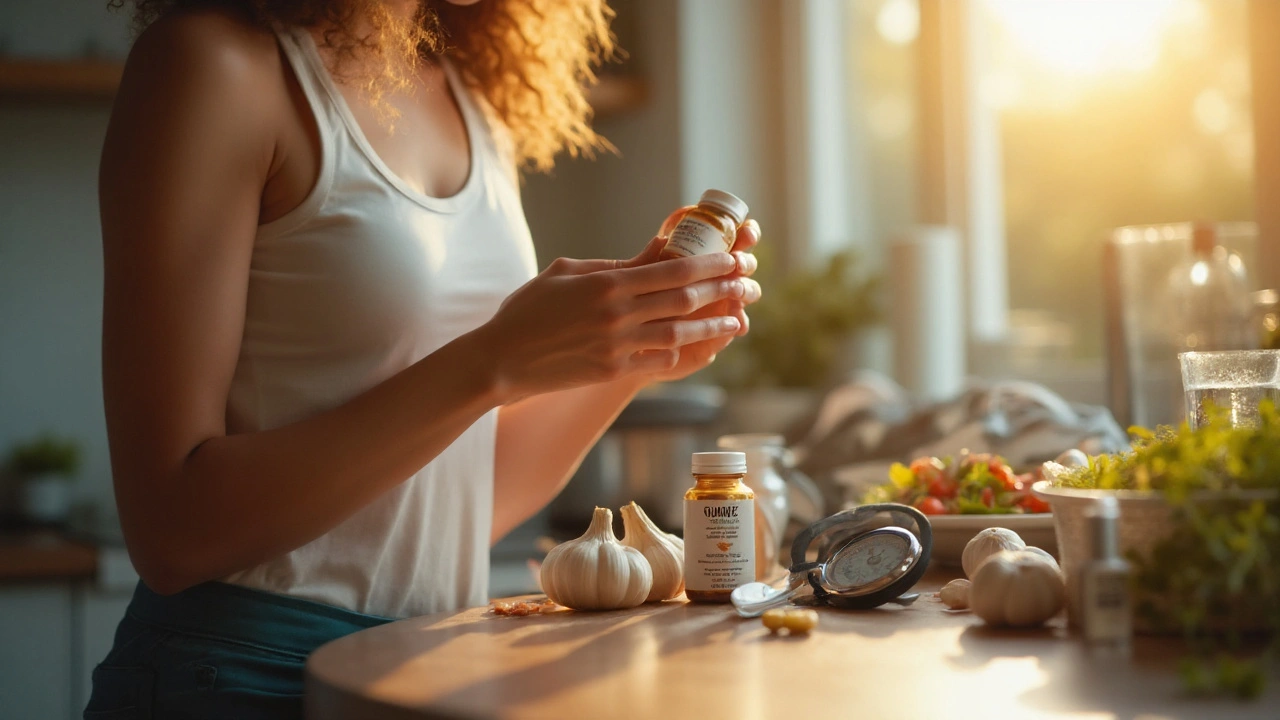Allicin: What It Is, How It Works, and How to Use It Safely
Allicin is the compound that gives garlic its strong smell and many of its health claims. When you crush or chop garlic, an enzyme turns a harmless sulfur molecule into allicin. This reaction happens quickly, so the fresher the garlic, the more allicin you get.
People take allicin for heart support, immune help, and sometimes to lower blood pressure. The evidence isn’t perfect, but many users notice a mild boost in energy or fewer colds. If you’re curious, the key is to start low, watch how you feel, and keep it simple.
How to Get Allicin – Food vs. Supplements
Cooking garlic for a long time destroys most allicin. To keep it, crush a clove and let it sit for about ten minutes before heating. That short wait lets the enzyme do its job. Adding the garlic at the end of a stir‑fry or sprinkling raw garlic on salads works well.
If you don’t like the taste, allicin supplements are an option. Look for products that list “standardized allicin” or “aged garlic extract.” These usually come in capsules or tablets and are made to keep the active compound stable. A typical dose is 300–600 mg of standardized allicin per day, but start with half that amount.
Safety Tips and Possible Side Effects
Allicin is safe for most people when taken in normal food amounts. In higher supplement doses, some folks get stomach upset, heartburn, or a bad breath that lingers. If you’re on blood thinners (like warfarin) or have a bleeding disorder, talk to a doctor first—allicin can thin your blood a bit.
Pregnant or nursing women should be careful; there isn’t enough research to say it’s completely safe. Also, if you’re planning surgery, stop allicin supplements a week before the operation to avoid extra bleeding risk.
Allergic reactions are rare but can happen. If you notice itchy skin, swelling, or trouble breathing after eating garlic or taking a supplement, stop immediately and get medical help.
To get the most out of allicin, combine it with a balanced diet and regular exercise. One clove of raw garlic a day or a low‑dose supplement can fit into most routines without a big hassle.
Remember, allicin isn’t a miracle cure. Use it as a small part of a healthy lifestyle, not as a replacement for prescribed medicines. If you have chronic conditions, always check with a healthcare professional before adding new supplements.
Bottom line: allicin gives garlic its punch and may support heart and immune health. Keep it fresh, start low, watch for side effects, and you’ll likely enjoy the benefits without trouble.
Garlic Supplements Benefits: Evidence, Dosage, and Side Effects
What garlic supplements really do: evidence-backed benefits, safe dosages, who should avoid them, and how to pick the right type (allicin vs aged garlic extract).

